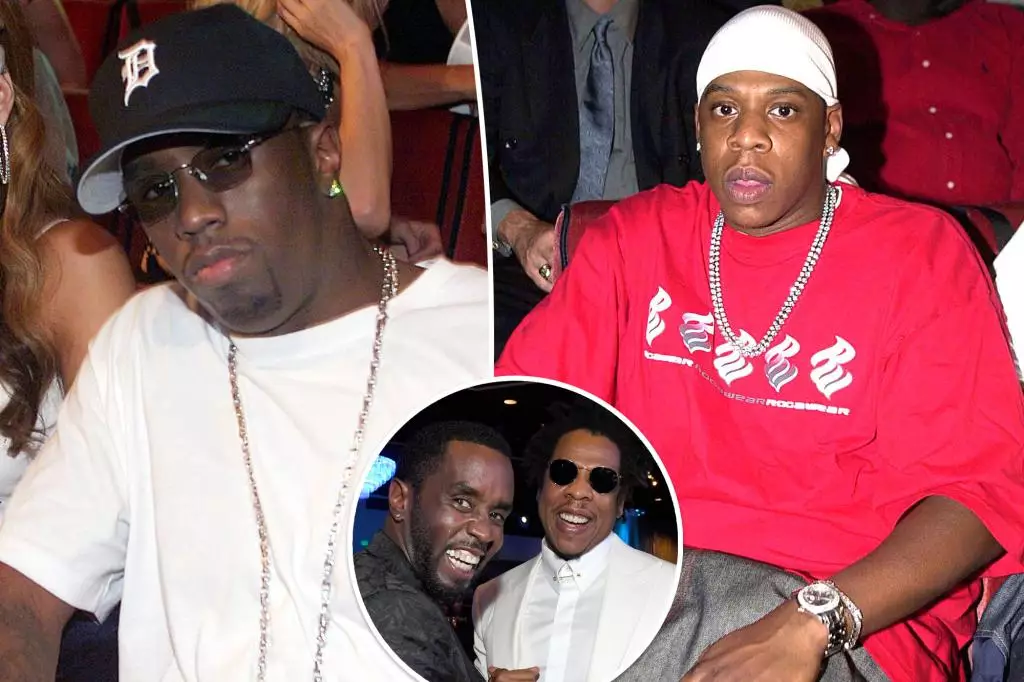The music industry has long been a realm where both talent and controversy collide. Recently, shocking allegations have been made against two prominent figures in hip-hop: Jay-Z and Sean “Diddy” Combs. The duo is now facing serious claims stemming from incidents reported to have taken place over two decades ago. This article delves into the allegations, the legal responses, and the broader implications of such serious claims.
In an alarming turn of events, a civil lawsuit re-filed by Texas attorney Tony Buzbee alleges that Jay-Z, whose real name is Shawn Carter, along with Diddy, raped a 13-year-old girl during an afterparty for the 2000 MTV Video Music Awards. The accuser, referred to as Jane Doe, claims that the traumatic event occurred at a New York house party on September 7, 2000. According to court documents acquired by Page Six, the lawsuit details a disturbing series of events where the young girl, after being allegedly offered a drink that made her feel disoriented, was led to a bedroom. What followed was an excruciating experience of which victims are often reluctant to speak.
The gravity of the allegations demands acknowledgment: if substantiated, they not only call into question the personal conduct of these two artists but also evoke broader issues regarding the treatment of minors in environments dominated by power and celebrity.
Reacting to these grave allegations, Jay-Z has publicly refuted them as “heinous” and has criticized Buzbee for what he views as a shameless attempt at extortion. In a detailed statement, he expressed his disbelief at the allegations and called for a criminal investigation instead of just a civil lawsuit. Jay-Z advocated for justice not only for himself but also for the accusers, insisting that anyone capable of such actions should face criminal charges. His rhetoric conveys both an emotional burden and a sense of indignation—he mourns for his children and family, forced to navigate the fallout of such serious and damaging claims.
Diddy’s legal team has also responded firmly, dismissing the allegations as tactics to gain publicity and financial compensation from high-profile individuals. They assert confidence in the justice system, claiming all allegations against him are unfounded. The dichotomy of narratives—one fighter stands firm in denial while the other is left bearing the accusation—highlights the complexities involved in high-stakes celebrity cases that involve sexual assault claims.
This case raises essential questions about the power dynamics present in the entertainment industry. The influence and wealth held by figures like Jay-Z and Diddy invariably introduce a level of complexity often absent in typical cases of sexual assault. There exists a historical context where many victims have hesitated to come forward, fearing they would not be believed or that their claims would be minimized. To have two industry giants at the center of such accusations forces a societal dialogue regarding accountability and the urgent need for institutional changes to support survivors.
As legal battles loom, the implications on their careers and public personas remain uncertain. Both artists have garnered substantial followings and have solidified their legacies within the hip-hop genre. However, allegations of this magnitude won’t simply vanish; they linger in public consciousness, reshaping narratives and challenging the status quo. For their fans, the revelation of such behavior can erode trust and admiration, leading to a reconsideration of their ethos as artists.
As September 2025 approaches, when Diddy is set to face his trial regarding sex trafficking charges, it will be crucial to observe how the legal proceedings unfold. Should the claims against either artist move forward in court, the resulting public discourse may significantly affect their careers and broader cultural landscape. With discussions around sexual violence and accountability intensifying, how these cases are perceived may bring about shifts in consumer behavior and industry standards.
For now, the allegations against Jay-Z and Diddy remain just that—allegations. Until proven otherwise, their legal teams will strive to maintain their innocence, even as the public grapples with the uncomfortable truths of fame and reputation amidst severe allegations. As this case continues to develop, it invites society to reflect not only on the actions of the accused but also on the systemic reform needed to prioritize and protect those who frequently find themselves voiceless in the face of power.

